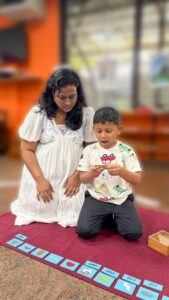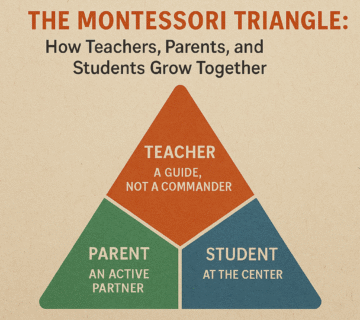It’s a common question we hear at pick-up: “Can my six-year-old child work on some worksheets to understand what was learnt in school?”
While the intention comes from a good place, research and years of experience with children suggests that worksheets are not always the most effective way to deepen understanding, especially for young learners.

What the evidence actually says??
- Minimal academic payoff in primary grades. Professor John Hattie’s global database finds homework has “zero effect” on learning before roughly Grade 6.
- Impact varies by age. Harris Cooper’s well-known meta-analysis shows benefits rise steadily only after elementary school.
- EEF toolkit echoes this. The UK’s Education Endowment Foundation rates homework “low impact” for young children unless it’s short, hands-on, and well-supported by adults.
- Family stress is real. Surveys of 1,100 parents linked traditional homework to a 200 % jump in after-school arguments, especially when tasks felt confusing or irrelevant.
Put simply, long written assignments often cost families more peace than they yield in progress.
Redefining “home work”
At this age, children learn best through hands-on activities, open-ended exploration, storytelling, and meaningful conversations. Their minds are wired to absorb knowledge not through passive listening or repetition, but through doing, observing, and engaging with the world around them. Young brains thrive on routines that turn everyday moments into mini-lessons:
- Read for pleasure together. A 2024 international review connected frequent leisure reading with higher language scores and stronger overall achievement even without formal homework.
- Talk chores, not scores. Folding laundry becomes a math chat (“How many socks make three pairs?”).
- Board-game maths. Snakes-and-Ladders teaches counting, risk, and emotional regulation with no worksheet required.
- Story swaps at dinner. Asking “What made you curious today?” builds vocabulary and reflection skills.
- Free outdoor play. Johns Hopkins researchers note that unstructured time supports focus and self-regulation, benefits many worksheets aim to mimic.
These activities hit the same developmental targets as pencil-and-paper assignments while leaving room for family connection.

A practical rule of thumb for parents and teachers
- Keep it short. If a task can’t be finished in 10 minutes x the child’s grade, rethink it.
- Make it hands-on. Swap spelling lists for fridge-magnet word games.
- Link to real life. Ask children to measure rice for dinner instead of copying volume problems.
- Offer choice. A single “menu” of three quick activities respects different interests and reduces battles at bedtime.
Where ELC stands
Our focus on early years excellence means we favour homework that sparks curiosity over rote repetition. When take-home tasks are set, they are brief, practical, and designed for parent–child conversation-never busywork for its own sake.
Key takeaway
Less traditional homework in Kindergarten to Grade 6 doesn’t mean less learning. It means swapping nightly worksheet marathons for shared reading, playful maths, and real-life problem-solving that fit naturally into family life. Children stay curious, parents stay sane, and everyone wins.

